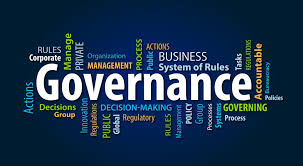Nigeria, Africa’s most populous nation and largest economy, continues to grapple with a persistent leadership and institutional crisis that has crippled its development for decades. Despite an abundance of intellectual capital, natural resources, and youthful energy, the country remains mired in systemic inefficiency, corruption, and social inequality. At the heart of this problem lies a deep-seated failure in leadership studies and institutional development — a crisis that threatens the nation’s democratic stability and its quest for sustainable progress.
Leadership, by definition, is the capacity to inspire, mobilize, and direct people toward collective goals. Yet, in Nigeria, leadership has too often been reduced to a scramble for power and privilege. From local government councils to the corridors of the presidency, the country’s political culture is marked by patronage, tribalism, and self-interest.
Scholars and observers have long lamented that Nigeria’s greatest challenge is not a lack of resources but a failure of leadership — a theme famously underscored by Chinua Achebe in The Trouble with Nigeria (1983).
One of the most alarming aspects of this crisis is the poor state of leadership studies and civic education within the nation’s institutions. Universities and training institutes, which should serve as incubators for visionary leadership, have become victims of the same decay they are meant to correct.
Many Nigerian tertiary institutions lack comprehensive programs in leadership ethics, governance studies, or institutional management. Instead, leadership is often treated as an abstract concept, divorced from practical application and moral responsibility. The result is a generation of graduates well-versed in theory but ill-equipped to navigate the complex realities of governance and public service.
The absence of a structured leadership development culture has had dire consequences for Nigeria’s institutions. From the civil service to public corporations, institutional failure has become the norm rather than the exception. Government agencies are plagued by inefficiency, bureaucratic bottlenecks, and corruption.
Policies are implemented without continuity, and reforms are frequently abandoned midway. The institutional decay is evident in sectors such as education, healthcare, and infrastructure — areas where weak leadership and mismanagement have eroded public trust.
The Nigerian civil service, once the pride of West Africa, now suffers from low morale, inadequate training, and political interference. Leadership appointments are frequently based on loyalty rather than merit, undermining professionalism and accountability. This has created a vicious cycle where incompetent leadership reproduces more incompetence, further weakening the nation’s institutions.
Beyond government, the private sector has also felt the impact of Nigeria’s leadership deficit. Corporate governance failures, financial mismanagement, and ethical lapses have plagued many Nigerian firms. The lack of strong institutional frameworks to enforce accountability and transparency has allowed mediocrity to flourish.
Even civil society and religious organizations — institutions that should act as moral compasses — have not been immune to the crisis. Leadership has too often been personalized, and service has been replaced by self-promotion.
Analysts argue that the root of Nigeria’s institutional weakness lies in the failure to cultivate leaders who embody integrity, vision, and service. Leadership in Nigeria is often viewed as an entitlement rather than a responsibility. Political godfatherism and ethnic politics have replaced meritocracy, while the absence of strong leadership education has left young people with few role models to emulate.
To reverse this trend, experts advocate for a complete overhaul of leadership training and institutional frameworks. Universities and policy institutes must integrate leadership and governance studies into their curricula, emphasizing ethics, innovation, and nation-building.
Government agencies should invest in leadership development programs that prioritize merit, accountability, and performance. Nigeria must also strengthen its democratic institutions — including the judiciary, legislature, and civil service — to ensure effective checks and balances that limit the abuse of power.
Leadership reform should begin at the community level. Local leaders, traditional institutions, and youth organizations can play a pivotal role in nurturing responsible leadership. By promoting mentorship, civic education, and participatory governance, Nigeria can rebuild the moral and institutional foundations necessary for progress.
Nigeria stands at a critical crossroads. The future of its democracy and development depends on its ability to produce leaders who can rise above personal and ethnic interests to pursue the common good. The crisis of leadership and institutional failure is not merely a political problem; it is a moral and intellectual one.
Without urgent reform in how Nigeria educates, selects, and supports its leaders, the nation risks perpetuating a cycle of dysfunction that will continue to stall its potential. The time has come for Nigeria to rediscover the true meaning of leadership — not as a means of domination, but as a vehicle for transformation.





